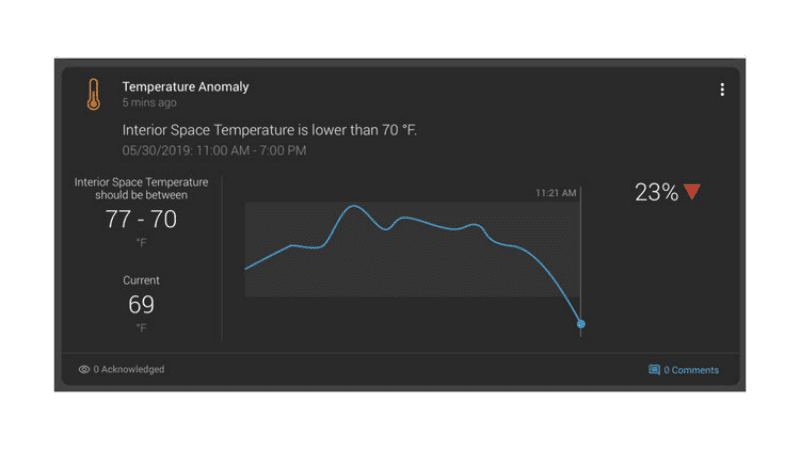KPMG has announced a patent-pending blockchain-based capability, Climate Accounting Infrastructure (CAI). The objective is to help an organisation more accurately to measure, mitigate, report and offset its greenhouse gas emissions. In doing this the blockchain-based method also analyses any climate risk impact on asset portfolios. This can act as an element in an organisation’s long-term financial planning
“As investors broaden their focus beyond financial factors to include ESG practices, organizations are increasing efforts to reducing carbon footprints, alongside transparent disclosure of progress. Trusted reporting capabilities, such as those enabled by Climate Accounting Infrastructure, will be critical to meet stakeholder expectations and to comply with emerging regulations,” said Arun Ghosh, KPMG’s U.S. Blockchain leader.
The climate change need
“Spurred by regulators and environmentally conscious consumers and shareholders – and eager to better manage their own operating costs – companies see a growing economic interest in moving to a low-carbon economy. Smart leadership teams also see it as a way to:
- protect and improve their company’s reputation
- get ahead of future regulatory requirements
- uncover emerging environmental opportunities and risks.“
In 2020, organisations around the globe expect, and are expected, to report sustainability practices and results. The intention is that such reporting shows whether they meet environmental, social and corporate governance (ESG) demands of capital markets investors.
In parallel, carbon emission requirements continue to evolve – and expand. The importance of carbon as a climate change driver is generally accepted.
In order to achieve both enterprise and compliance objectives, these needs require a trusted and transparent system to measure, account for and report on emissions data.
“Modernizing ESG practices is becoming a priority for every industry, from energy to technology to healthcare to retail, to support both financial performance and resilience,” said Mike Hayes, KPMG’s Global Renewables leader.
“As a result, global organizations are looking to integrate environmental and financial risks associated with the cost of carbon into their real estate portfolio approach, using emerging technologies to validate their data and strategy.”
KPMG’s CAI
To support transparent and reliable reporting of emissions data, CAI will integrate an organisation’s existing systems, including IoT sensors, with external data sources. This will establish a verifiable trail of emissions and offsets and record the results on blockchain.
CAI utilises trusted, real-time environmental data and advanced analytics to model the impact of climate risks on business operations and financial performance.
To bring its Climate Accounting Infrastructure capabilities to market, KPMG is working with industry groups, large technology players and climate technology companies. These include:
- Context Labs
- Prescriptive Data
- Allinfra.
Context Labs, Prescriptive Data and Allinfra
Context Labs enriches emissions data with environmental context. It says it uses its Immutably platform to record and certify environmental, operational, and financial information as ‘asset grade’ before translating this (data) into AlphaESG signals via machine-learning models. These signals, combined with additional third-party and publicly available data sources, support emissions analytics and insights.
Prescriptive Data supports verifiable emissions data across real estate portfolios. Its intelligent building software, Nantum OS (which uses artificial intelligence) also uses machine learning and Internet of Things (IoT) sensors to capture and analyse building, occupancy and environmental data. This data aids in:
- optimising consumption
- reducing emissions
- enabling insights into carbon offsets and the renewable energy certificates needed to achieve emissions goals.

Allinfra, a Consensys-backed company, enables integration across what it calls ‘the carbon offset demand model’. It does this by providing a verified supply of carbon offsets and renewable energy certificates (RECs). Allinfra’s blockchain-based platform integrates with renewable energy-producing infrastructure assets, at source. This means organisations can have visibility into the provenance and integrity of carbon offsets and RECs they purchase.
Enterprise Times: what does this mean
In KPMG’s view, enterprises increasingly need to document their energy consumption. In addition, they must be sure their offset calculation is accurate. This necessarily must involve data obtained from a broad range of sensors, from IoT to metering and other forms of direct measurement. This must then be combined with external sources, not least carbon trading exchanges. so as to form a complete – and accurate – picture.
KPMG is not the first to enter the climate management information space. For example, there is BFLO Lab. Whether KPMG’s CAI will do what it claims will take time to prove, not least the blockchain technology component. But if it does, enterprises will gain a constructive tool.
